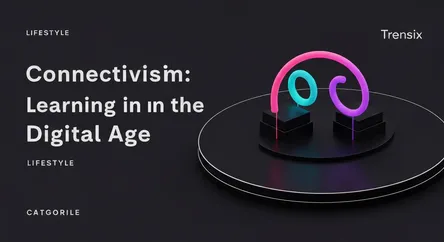Lifestyle
Connectivism: Learning in the Digital Age

Discover Connectivism, the learning theory for our interconnected world. Learn how networks and technology are reshaping how we acquire knowledge.
What is it?
Connectivism is a learning theory for the digital age, developed by George Siemens and Stephen Downes. It posits that knowledge exists not just in the mind of an individual, but is distributed across a network of connections. Learning is the process of creating, navigating, and growing these networks. Unlike older theories, Connectivism sees technology as a crucial part of the learning process, with knowledge residing in databases, social networks, and other digital resources. The core idea is that the ability to find and maintain connections to sources of information is more important than memorizing the information itself.
Why is it trending?
The rise of the internet, social media, and Massive Open Online Courses (MOOCs) has made Connectivism highly relevant. Traditional educational models were designed for an era of information scarcity. Today, we face information abundance. Connectivism provides a framework for understanding how learning happens in this new environment, where knowledge is fluid and constantly evolving. It explains the value of learning through communities, blogs, wikis, and other social platforms, emphasizing collaboration and the collective construction of knowledge in a networked world.
How does it affect people?
Connectivism changes the role of both the learner and the educator. For individuals, it promotes self-directed, lifelong learning by encouraging the creation of a Personal Learning Network (PLN). This empowers people to take control of their own educational journey. It shifts the focus from what you know to your capacity to know more by tapping into your network. For educators, the role evolves from being a content expert to a network facilitator or curator, guiding learners on how to build and leverage their connections effectively. It emphasizes skills like critical evaluation of information and network literacy.